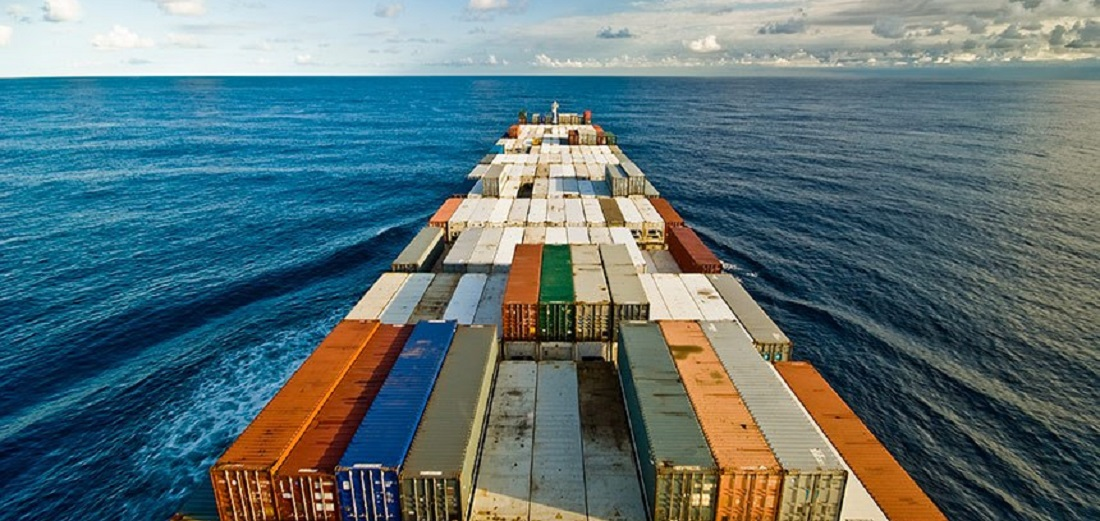
Brazil’s government considers reducing charges over maritime freight
Mar, 14, 2022 Posted by Gabriel MalheirosWeek 202211
Given the high cost of fuel and the disruptions in the fertilizer market, a proposal to lower sea freight charges has gained traction in various government branches, which are considering lowering the rates of the “Additional Freight for the Renewal of the Merchant Navy,” a tax on goods imported goods.
Adopting such a measure would reduce import costs, including the inputs used by Brazilian agribusiness. Created to feed the Merchant Marine Fund (FMM in Portuguese), the AFRMM is charged over the transportation of goods through Brazil’s various waterway systems.
This tax cut may take shape in two different ways. First, the government is considering revising a decree to reduce tax rates by around 30%, which officials could officially announce within the next two weeks. Second, there is a proposal to overturn President Jair Bolsonaro’s veto on reducing import rates under the cabotage incentive program, known as BR do Mar.
The Brazilian Congress will reassess the president’s decision in the coming days. One of the strongest interest groups in the parliament, the National Agricultural Front (FPA), will work to overturn the veto.
In January, the Executive stated that, for a budgetary reason, it could not sanction reducing AFRMM rates.
Bolsonaro’s veto
The charge on long-distance shipping, which is currently at 25%, is the Agribusiness’ main critique over maritime freight in Brazil. However, with the federal government’s proposed cut, the rate would drop to nearly 16%.
The cut proposed within the scope of the BR do Mar program was much more aggressive. Such a difference may fuel the discontentment of various groups over Jair Bolsonaro’s veto. According to private sources, the tax cut proposed by the government reached the limit stipulated by the federal Executive, with no consultation of specialists nor attention to the need for budgetary compensation.
The veto of the AFRMM reduction surprised many because its positive impact had been highlighted by the Ministry of Economy’s Secretariat of Economic Policy. In a note issued shortly after Congress approved BR do Mar, the agency stated that the contraction could lower the average food basket price by at least 4%, facilitate imports, make domestic production cheaper, and boost GDP growth by more than 0.2%.
Mobilization
With the increasingly higher costs of food and fertilizers, many sectors that pay the charge are mobilizing to approve its reduction. The action has the support of FPA, which will work to overturn the veto, said deputy Arnaldo Jardim, a member of the group, to Estadão/Broadcast. The National Confederation of Agriculture and Livestock (CNA) also highlighted a cut in AFRMM rates would reduce the price of fertilizers, a product whose market was severely affected by the war in Ukraine.
Within the government, though, there is a wing of technical experts who advocate for long-distance navigation cuts only. In this case, the flow of income to the Merchant Marine Fund would not be affected so abruptly, reducing resistance from the naval industry.
The government will decide on its position tomorrow to guide Congress’ session on the 16th. The information is from the newspaper O Estado de São Paulo.
Source: Reuters
To read the full original article, please go to:
https://www.moneytimes.com.br/governo-estuda-reduzir-encargo-sobre-frete-maritimo/
-
Trade Regulations
Mar, 27, 2024
0
Argentina’s decision to facilitate food imports faces criticism
-
Shipping
Oct, 14, 2021
0
Wilson Sons docks the longest vessel in its history at Guarujá
-
Ports and Terminals
Jun, 27, 2022
0
Vegetable-derived liquid exports on the rise in the Port of Paranaguá
-
Sugar and Ethanol
Jan, 04, 2023
0
Indonesia to import 3.6 mln T raw sugar, 991,000 T white sugar


